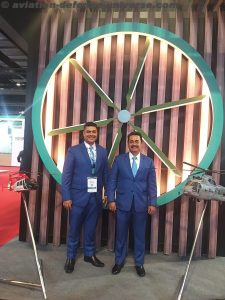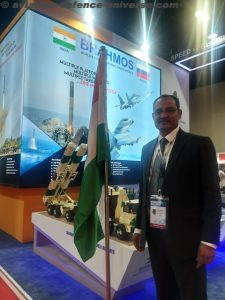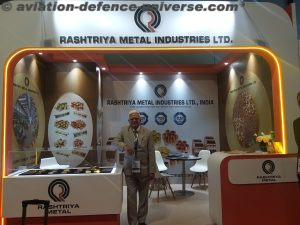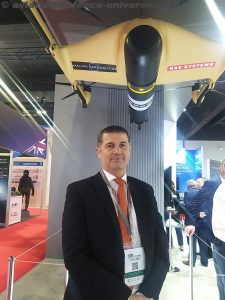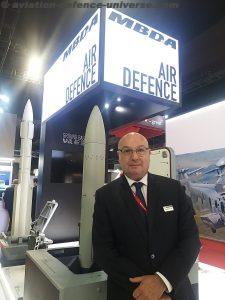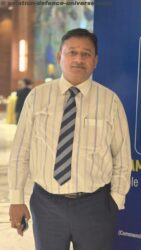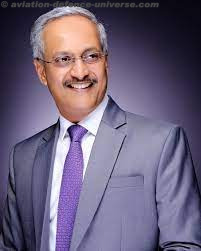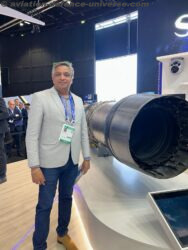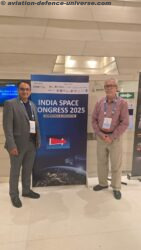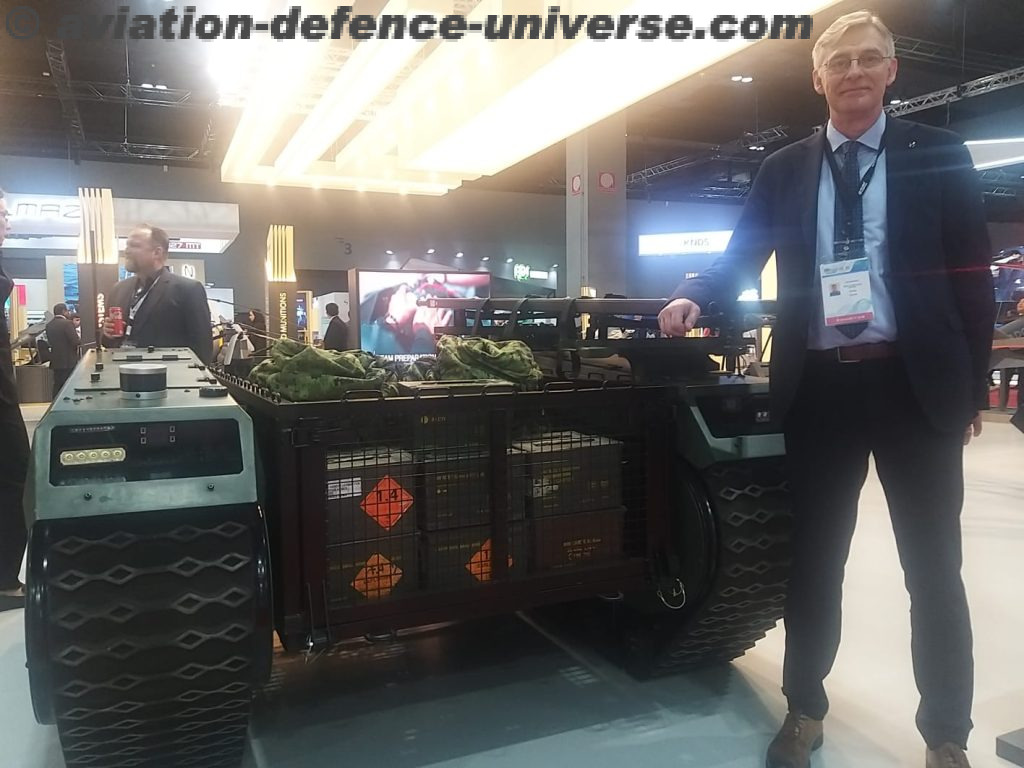
By Sangeeta Saxena
Kuala Lumpur/ New Delhi. 23 May 2024. “THeMIS UGVs have been selected due to their innovative technology and their widespread adoption in 16 nations, including eight NATO members: Estonia, France, Germany, the Netherlands, Norway, Spain, the United Kingdom, and the United States. Japan is the latest country which will benefit by this amazing robotic product. TheMIS UGVs are supporting Ukrainian soldiers in their conflict with Russia,” informed Stefan Behre, Regional Sales Manager Milrem Robotics in an exclusive interview with Aviation & Defence Universe (ADU) at DSA 2024.
 ADU. So the fact that we are meeting here at DSA Malaysia, what is Milrem Robotics showcasing here?
ADU. So the fact that we are meeting here at DSA Malaysia, what is Milrem Robotics showcasing here?
Stefan Behre. Well, we are showcasing the THeMIS vehicle, the THeMIS system. And the THeMIS is a UGV, an unmanned vehicle, ground vehicle. In this case we are showing the Cargo and the Kasevak, where you can bring a lot of stuff and you can also bring back injured. The THeMIS can have different kind of payloads. So you can put a gun on it, you can put radars or basically whatever you want on it. The payload can be 750 kilos. You drive this vehicle remotely or with autonomy. An autonomy kit where you basically can put out the spot where you want it to go and it goes there.
ADU. How important is this region for Milrem? Which countries are you targeting for sales?
Stefan Behre. Very important. Actually we are exploring the possibilities in Malaysia and in surrounding countries. We have actually made some sales to neighbouring countries. We have in Singapore and Thailand. We also just made a contract with Japan.
So we are making progress in the region, so to say. And in Malaysia, I would say that we just have started the discussions and showing the capabilities for the customers. And which other surrounding countries are you targeting at the moment? Well, so far most countries in robotics are exploring, they are trying out.
And that is also the case in Singapore, Thailand and Japan. So they are buying a couple of systems, trying them out to see where does this capability fit in their organization before they do major numbers. So we are mostly doing the follow-up in these countries. But we are feeling the ground in other countries as well.
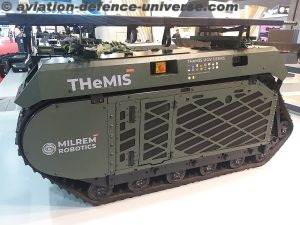 ADU. And the fact that you are here at the UAE pavilion, why so? Why are you not here independently?
ADU. And the fact that you are here at the UAE pavilion, why so? Why are you not here independently?
Stefan Behre. Well, EDGE is one of our major shareholders. So in countries where they have contacts or have major contacts at exhibitions, where we normally don’t spend a lot, we invest a lot, we go under their umbrella. In other countries we go as prime, we are leading. In Europe, for example, we take the lead. We are going independently.
ADU. But you are totally Estonian, isn’t it?
Stefan Behre. Well, I’m not, but the company is. The company is Estonian, the company is a European company. It is headquartered in and the main facilities in Tallinn, Estonia. We have also an office in Tartu in Estonia, in Sweden, in Finland, in Netherlands. And a small, very tiny in US.
ADU. And how many countries have you already sold to?
Stefan Behre. It’s already in the forces of eighteen countries. We haven’t delivered yet to UAE, which is a big contract. I think the first systems will arrive early next year. Early next year. And that contract is with 40 THeMIS, different payloads. And 20 of the bigger brother, Tractor City.
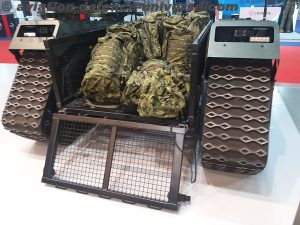 ADU. Do you envisage a market in Africa and South America?
ADU. Do you envisage a market in Africa and South America?
Stefan Behre. Well, Africa and Latin America, I would say that these are not too strong regions yet in robotics. In Africa, we don’t have any footprint and we actually go behind Edge. So if Edge finds an opportunity and lets us know, then we act. We are not exploring in Africa right now.
Latin America, we are taking some contacts. We have been in Brazil. We were in the exhibition last year there, presenting the THeMIS. So we have some contacts there, and we are looking a little bit by ourselves in some other countries. I have worked a lot in Latin America before. So my feeling is that there is not enough knowledge about this technology yet in the region. There will be when other countries actually are starting to choose them in the armed forces. And so far, the use of UAVs are coming. It’s growing. It’s already there. UAVs, not so much. So I think that Latin America will open up in a couple of years for this technology.
ADU. And keeping in mind the new geopolitical condition, do you feel that the Indo-Pacific and the Indian Ocean region, that gives you an opportunity to expand your business?
Stefan Behre. We always have a balance because when things are happening, then the need for something new and some new capability arises. Now, it also implicates that it might be a delicate situation where you may not have the permission to sell. And that depends a little bit. But now I think that there are so many areas in the world where war-like situations or wars are increasing. That also includes the need for new capabilities. In some of the countries, robotics is filling a new capability of, for example, for ISR, for surveillance or with weaponized systems. In other countries where you have a very small population, you feel the need of, if you don’t have the manpower. So you need to put this power on something else.
 ADU. What has been the feedback of THeMIS from customers?
ADU. What has been the feedback of THeMIS from customers?
Stefan Behre. I could say that one of our first customers was Netherlands. They have tried these systems for quite some years now. We are just providing an upgrade of the systems. So that is just a matter of time when they are starting to implement that in their armed forces. But one of the main reasons for them is actually that they don’t have a lot of manpower. They need one man to be able to do a lot more than one can do which is the ability to multitask. Then robotics comes in. The feedback has been good and of THeMIS being an asset.
ADU. Do you see need of innovating on to the existing technology?
Stefan Behre. So this is a very interesting phase in the technology. When we are starting to feel the customer, getting the feedback and knowing that we actually are in the edge of it. It also means that we have to understand that we are still developing. The vehicle you see here is a tracked vehicle. The bigger brother is also tracked. But we are working on development on wheeled systems as well. In both sizes. Just to have the options. And in some environments, tracks are great. In some environments, wheeled are preferred. And with some customers, they prefer wheeled. So we should be able to provide both. Tracked and wheeled. And in a couple of years, we will have both options. And as finalized products.
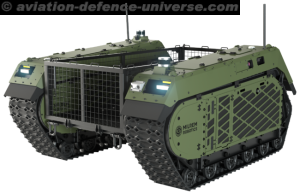 ADU. And from what I have always been observing is that Milrem is for the army or for the homeland security. What about the air force and the navy?
ADU. And from what I have always been observing is that Milrem is for the army or for the homeland security. What about the air force and the navy?
Stefan Behre. Yeah, of course. As long as they are talking ground vehicles. I think that robotics is not limited to ground vehicles. Our core is ground vehicles. But in the air force, you also use ground vehicles. For example, you could use ground vehicles for base protection. Yeah, for administrative purposes of the bases. And for the protection, you could use an autonomy unmanned ground vehicle for the perimeter. Peripheral security and things like that. The same for the navy. So, in our case, our core business is the ground vehicles. We have discussions mainly with army and homeland protection. But in some countries, we are also talking to the air force mostly about base protection. In some countries, we also have discussions with prisons. For prisons. So, with the police? Yes.
Now, when you come into the police, it depends a little bit on the country. Because if we go into a civilian application, it makes it a little bit delicate. Because you need other kinds of certifications depending on the country’s rules. Other kinds of certifications that we don’t have yet. And it’s common that the budget is different as well. Perfect.
ADU. And at the end what is the relationship Milrem has with India?
Stefan Behre. India is a very important country for us. The THeMIS is in service with the Indian Army. This was revealed in the Indian Parliament by Minister of State for Defence Ajay Bhatt, as per the document you are showing. It also says THeMIS was listed among the major defence equipment imported in the last three years. This speaks volumes for Indian focus of Milrem Robotics.
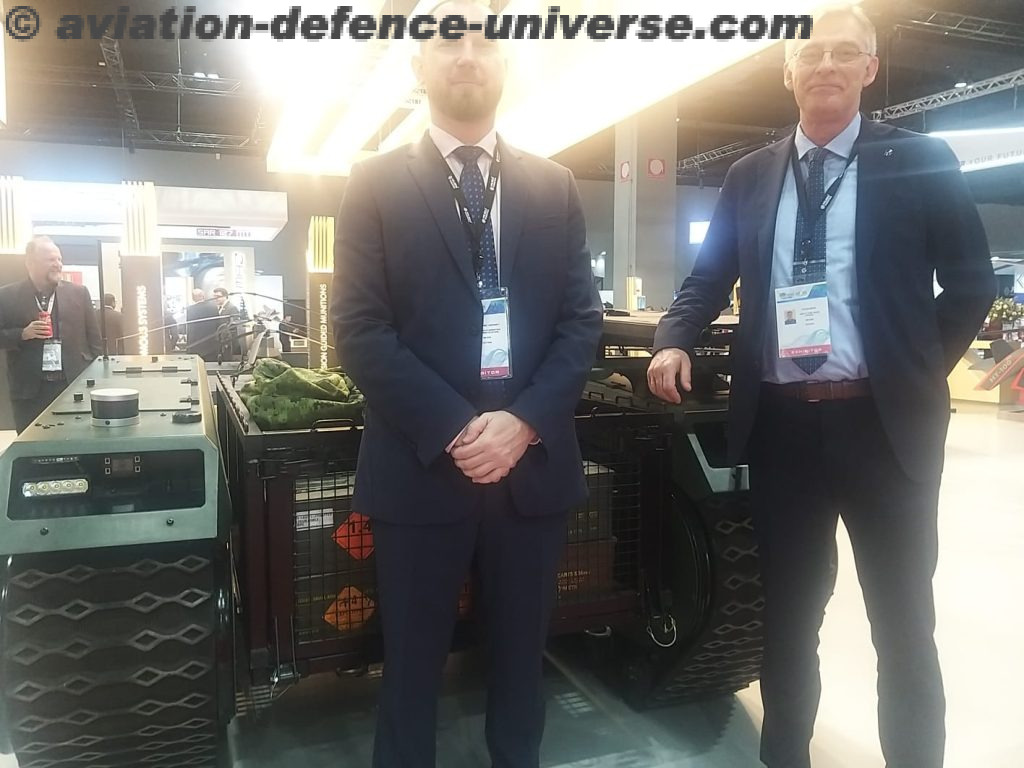
As told to Sangeeta Saxena

































